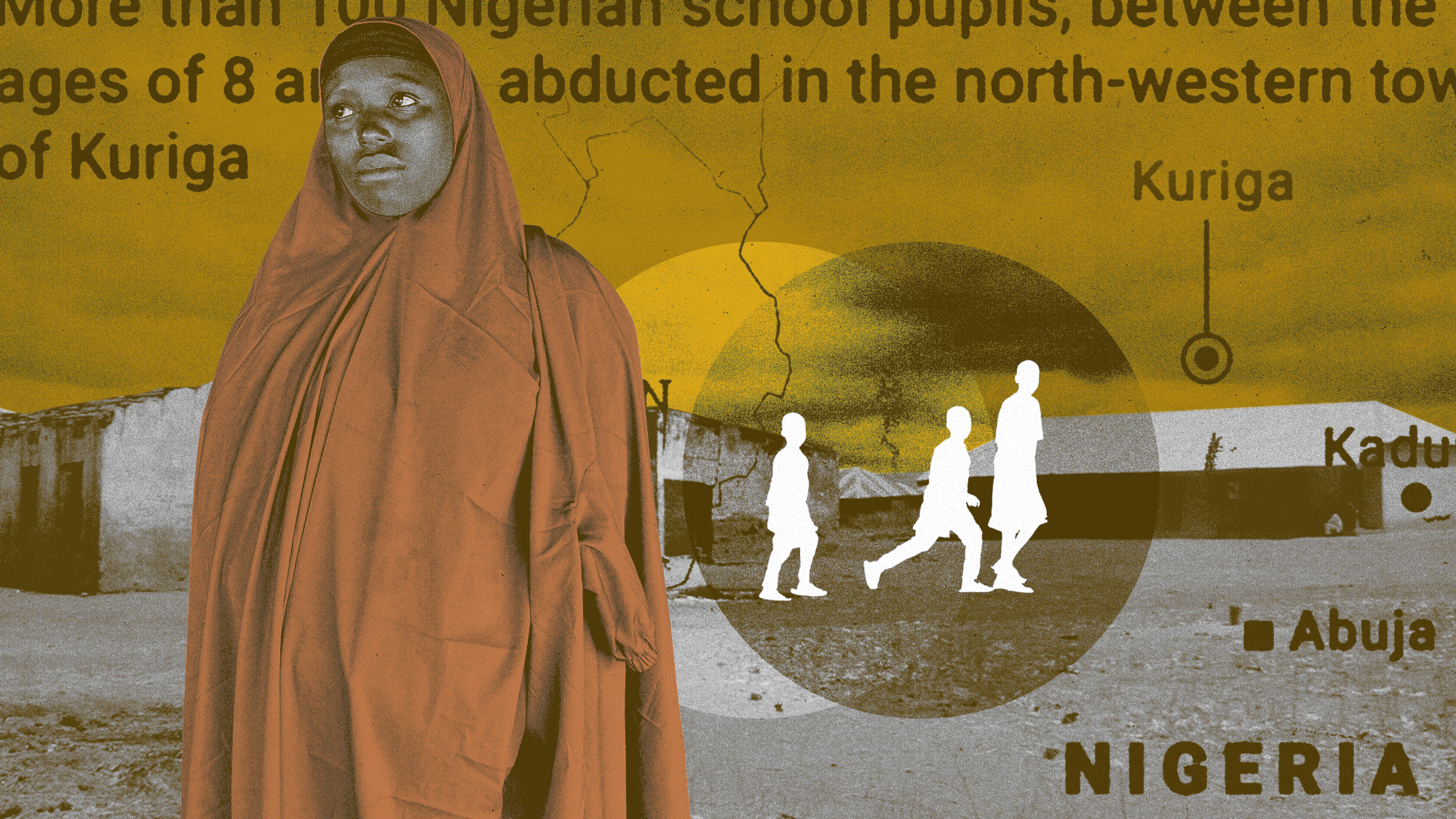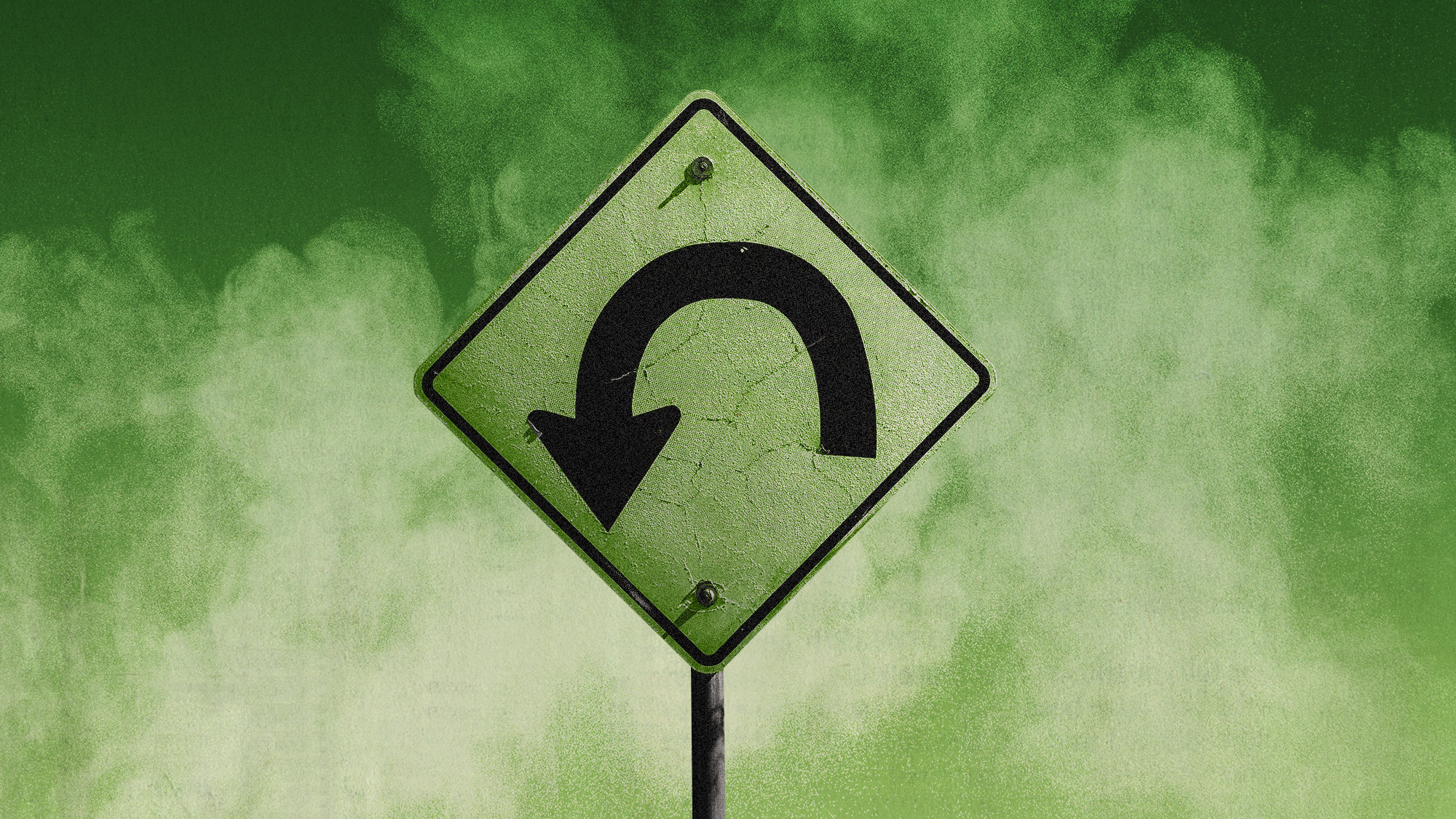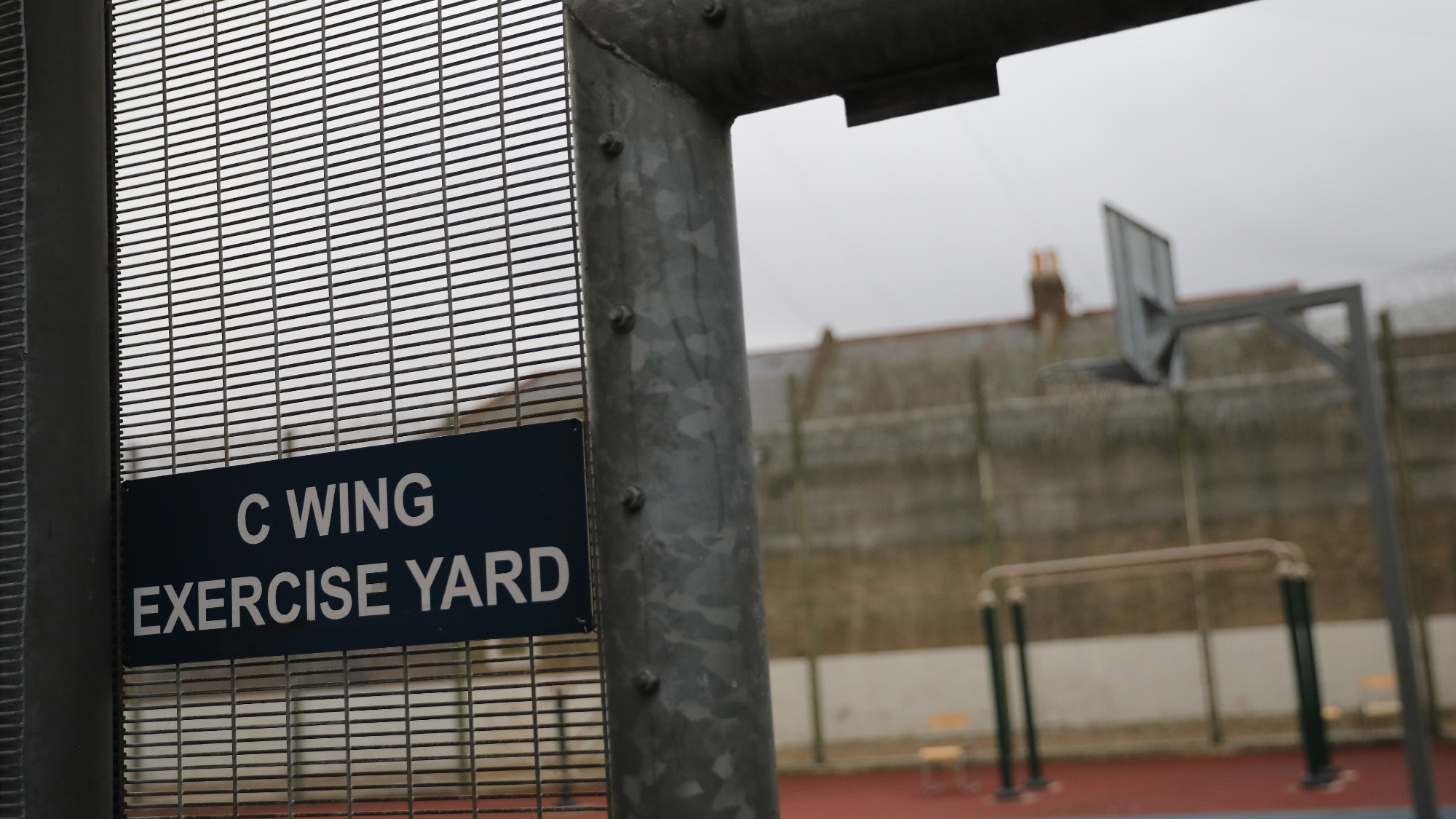Why are kidnappings in Nigeria on the rise again?
Hundreds of children and displaced people are missing as kidnap-for-ransom 'bandits' return

A free daily email with the biggest news stories of the day – and the best features from TheWeek.com
You are now subscribed
Your newsletter sign-up was successful
Searches are under way in several Nigerian states following the abduction of hundreds of schoolchildren and displaced people in recent weeks.
At least 400 people were taken from a displaced persons' camp by suspected Boko Haram fighters on 3 March, Amnesty International reported. Days later, armed "bandits" on motorbikes arrived at a primary school in Kuriga, northwest Nigeria, and "herded" around 300 students from the grounds, said Nigeria's Premium Times. A further 15 pupils were kidnapped from a boarding school in the northwestern state of Sokoto. No group has yet claimed responsibility.
The country is "once more being rocked by mass abductions", said the BBC. More than 3,600 people were kidnapped in Nigeria last year, "the most ever" recorded, according to Armed Conflict Location & Event Data figures cited by The Economist in January.
The Week
Escape your echo chamber. Get the facts behind the news, plus analysis from multiple perspectives.

Sign up for The Week's Free Newsletters
From our morning news briefing to a weekly Good News Newsletter, get the best of The Week delivered directly to your inbox.
From our morning news briefing to a weekly Good News Newsletter, get the best of The Week delivered directly to your inbox.
What did the commentators say?
Last week's events "brought to the limelight and possibly a climax the tragic episodes of years-long reign of terror in the community", said Premium Times. "For nearly two years, men including young boys haven't been sleeping in the night in Kuriga," an unnamed resident told the news site. "We do patrols with our locally made guns and rechargeable torchlights till the dawn."
The threat of abduction looms large across the country. In the northeast, "jihadists linked to Islamic State attack the army and villages", said The Economist. The northwest is "riddled with gangs that routinely kidnap for ransom. A decades-long conflict between mostly Muslim herders and largely Christian farmers rumbles on in the country's centre" and "separatist violence still smoulders in the south-east".
There had been a "lull" in mass kidnappings in recent months, but now it is "déjà vu" as the 10th anniversary of the Chibok secondary school tragedy nears, said the BBC. Since the abduction of 200 pupils by Boko Haram in 2014, "criminal bandits" have "mastered the abduction game", said Premium Times.
But unlike Boko Haram, those carrying out many of the recent attacks are not driven by a political or religious cause, said Nigerian novelist Adaobi Tricia Nwaubani in The Sunday Times. Their "primary motivation" is money.
A free daily email with the biggest news stories of the day – and the best features from TheWeek.com
Authorities do not usually manage to apprehend kidnappers, but "on the rare occasions" when they do, "these criminals are often revealed to be ordinary people with families, jobs, or even university students", said Nwaubani. For some, kidnapping has become "a desperate means of survival".
"In general, kidnap-for-ransom in Nigeria is a low-risk, high-reward business," said the BBC. It has become "a lucrative venture for people driven by economic desperation".
The country's turbulent economy "creates the conditions for kidnapping", William Linder, head of Africa-focused risk advisory firm 14 North, told the broadcaster. "Food prices have skyrocketed" and "the perception of corruption continues".
Security forces are working to pursue the attackers, but the Nigerian military "is spread thin" across "a multitude of crises", said Al Jazeera. "Local vigilante groups are not enough of a bulwark against the armed groups."
What next?
The recent abductions "represent just a fragment of a broader and deeply troubling pattern", said Nwaubani. "Nearly everyone I know in Nigeria has a relative or friend who has been abducted." Families are "forced into dire financial straits" to save their loved ones. Many Nigerians fear they are "just a sitting duck".
The country's "porous and insecure" borders add to its "insecurity", said the BBC. Forests in border regions have become "operational bases for the criminals".
The West African country needs to "work with its neighbours'', Bulama Bukarti, senior conflict analyst at the Tony Blair Institute for Global Change, told the broadcaster. "Without transnational cooperation especially with Niger, Cameroon, Chad, including in the north-western part of Nigeria's border, these incidents will continue to repeat themselves."
Though government spending on defence has risen, it has taken a cut in real terms against an inflation rate of 29%, said The Economist. Officials tend to "splurge on fancy weapons systems that fail to tackle the roots of the problem". Against this backdrop, these events call for a "swift re-evaluation of the subsisting national security strategies", said Nigerian daily newspaper Punch.
Further measures such as "deploying security forces to vulnerable areas, increasing surveillance, and implementing checkpoints along known routes used by abductors can go a long way in checking the situation", Punch continued. President Bola Tinubu "must double down" and "demonstrate an iron resolve to end mass kidnappings once and for all".
While security forces continue their searches, the communities rocked by these most recent abductions wait for news. "Combing the woodland expanses" for the missing children in Kuriga "could take weeks", said The Guardian. A local villager whose five grandchildren are among those missing said his hope for their safe return is fading.
Julia O'Driscoll is the engagement editor. She covers UK and world news, as well as writing lifestyle and travel features. She regularly appears on “The Week Unwrapped” podcast, and hosted The Week's short-form documentary podcast, “The Overview”. Julia was previously the content and social media editor at sustainability consultancy Eco-Age, where she interviewed prominent voices in sustainable fashion and climate movements. She has a master's in liberal arts from Bristol University, and spent a year studying at Charles University in Prague.
-
 How the FCC’s ‘equal time’ rule works
How the FCC’s ‘equal time’ rule worksIn the Spotlight The law is at the heart of the Colbert-CBS conflict
-
 What is the endgame in the DHS shutdown?
What is the endgame in the DHS shutdown?Today’s Big Question Democrats want to rein in ICE’s immigration crackdown
-
 ‘Poor time management isn’t just an inconvenience’
‘Poor time management isn’t just an inconvenience’Instant Opinion Opinion, comment and editorials of the day
-
 Why have homicide rates reportedly plummeted in the last year?
Why have homicide rates reportedly plummeted in the last year?Today’s Big Question There could be more to the story than politics
-
 Illicit mercury is poisoning the Amazon
Illicit mercury is poisoning the AmazonUnder the Radar 'Essential' to illegal gold mining, toxic mercury is being trafficked across Latin America, 'fuelling violence' and 'environmental devastation'
-
 Thailand is rolling back on its legal cannabis empire
Thailand is rolling back on its legal cannabis empireUnder the Radar Government restricts cannabis use to medical purposes only and threatens to re-criminalise altogether, sparking fears for the $1 billion industry
-
 North Korea may have just pulled off the world's biggest heist
North Korea may have just pulled off the world's biggest heistUnder the Radar Hermit kingdom increasingly targets vulnerable cryptocurrency, using cybercrime to boost battered economy and fund weapons programmes
-
 Haitian gangs massacre hundreds accused of 'witchcraft'
Haitian gangs massacre hundreds accused of 'witchcraft'Under the Radar Vodou practices blamed for gang leader's son's illness, as elderly are hacked to death in Port au Prince
-
 Italy's prisons crisis
Italy's prisons crisisUnder the Radar Severe overcrowding, dire conditions and appalling violence have brought the Italian carceral system to boiling point
-
 How people-smuggling gangs work
How people-smuggling gangs workThe Explainer The Government has promised to 'smash' the gangs that smuggle migrants across the Channel. Who are they and how do they work?
-
 Can Starmer's plan solve the prisons crisis?
Can Starmer's plan solve the prisons crisis?Today's Big Question Releasing inmates early is 'least worst option' to tackle overcrowding, but critics say it puts public at risk